Seconded By: Vladimir Karamazov,
The Iberian Peninsula is a land of contrasts — where fertile soil has sustained civilizations for centuries, a silent battle is now being waged between the survival of the landscape and the greed of an unsustainable agricultural model.
Where the Earth Weeps is a visual journey through two places where nature screams in silence. In southern Spain, red fruits grow under the shadow of greenhouses and illegal wells, draining the underground veins that feed Doñana — one of Europe’s last great wetlands. In Portugal, eucalyptus — alien, invasive, profitable — spreads its monochrome kingdom, drying out the soil and fueling the fires that devour forests and memories every summer.
This project does not simply show what is happening: it confronts it. It forces us to look directly at the cost of our choices, to question a vision of progress that empties aquifers and turns forests to ash.
Where the Earth Weeps is a visual manifesto. An attempt to stop time before it’s too late.
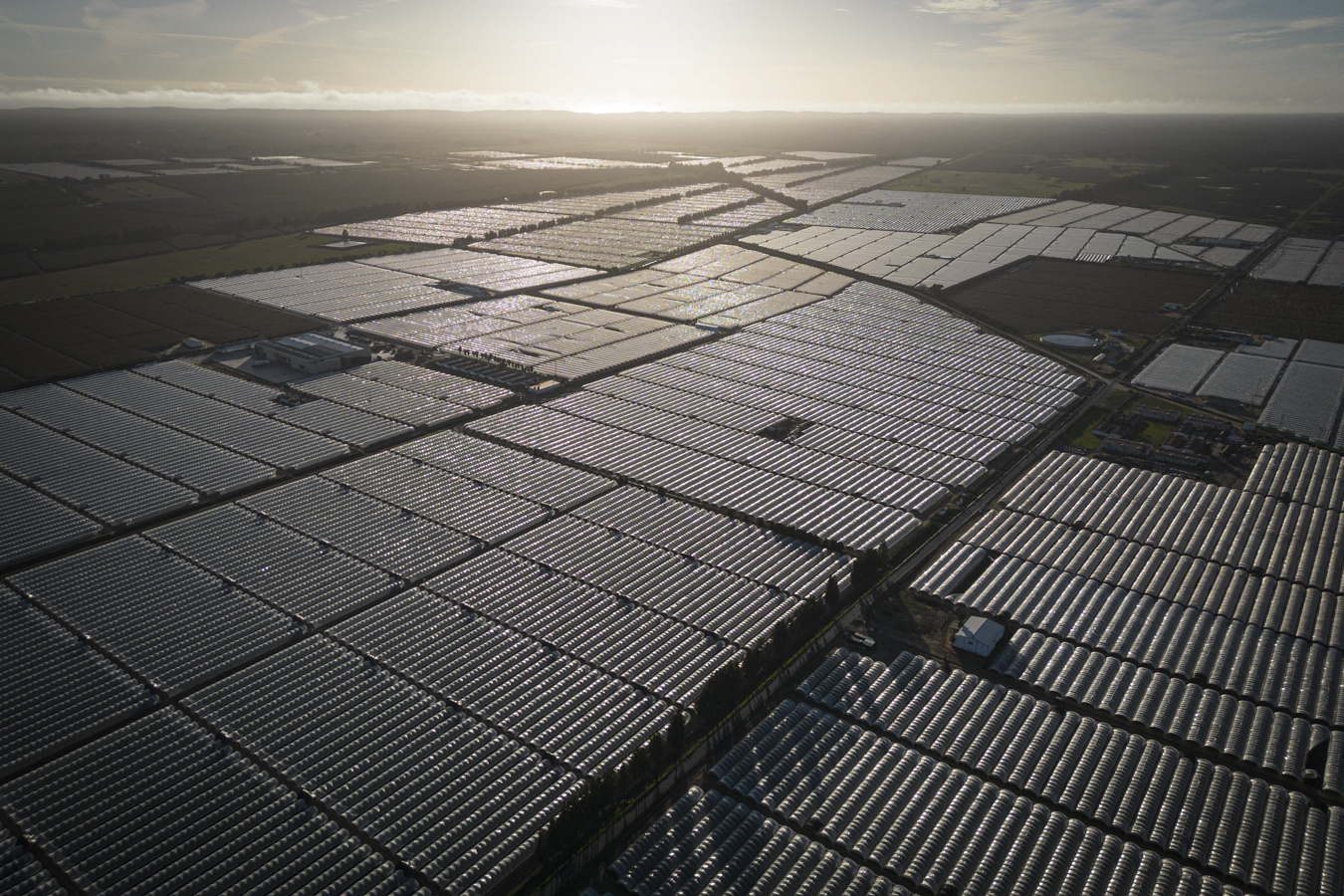
The land that breaks-1
Aerial view of expansive intensive agricultural fields surrounding Doñana Natural Park, in El Rocío, Spain, one of Europe’s most precious and biodiverse wetlands. This unique ecosystem is home to numerous endangered species and plays a crucial role in maintaining regional biodiversity and water regulation. However, the rapid expansion of water-intensive red fruit cultivation and illegal groundwater extraction threaten to dry out the park’s delicate habitats, putting its future—and the species it supports—at serious risk.
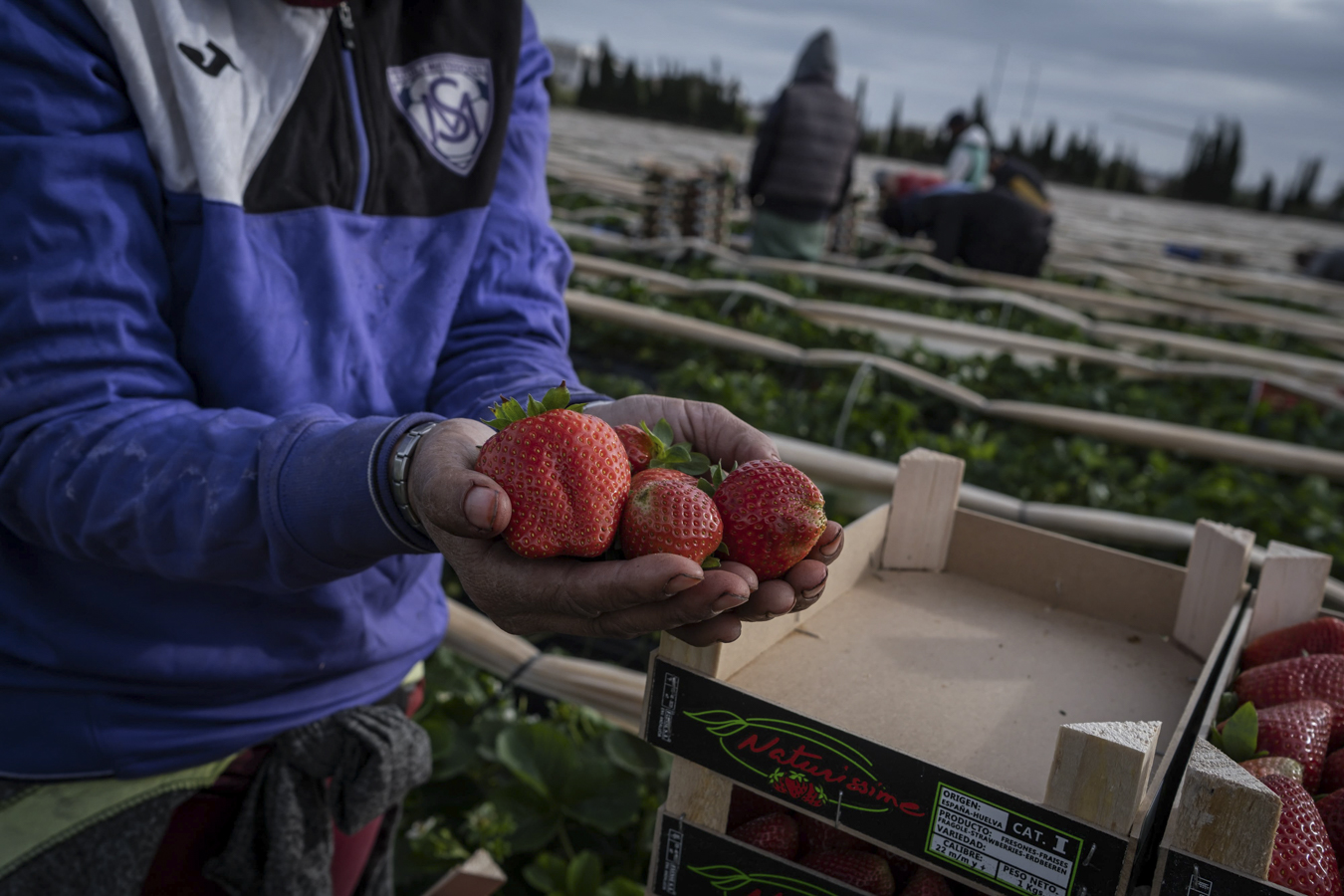
The land that breaks-2
A Moroccan farmworker holds freshly harvested strawberries in one of the intensive agricultural fields near Huelva, Spain. These fields are part of a large-scale red fruit industry that heavily relies on intensive farming practices, including high water consumption and pesticide use. The agricultural boom supports many migrant workers but also raises concerns about environmental sustainability and the impact on nearby protected ecosystems like Doñana National Park.
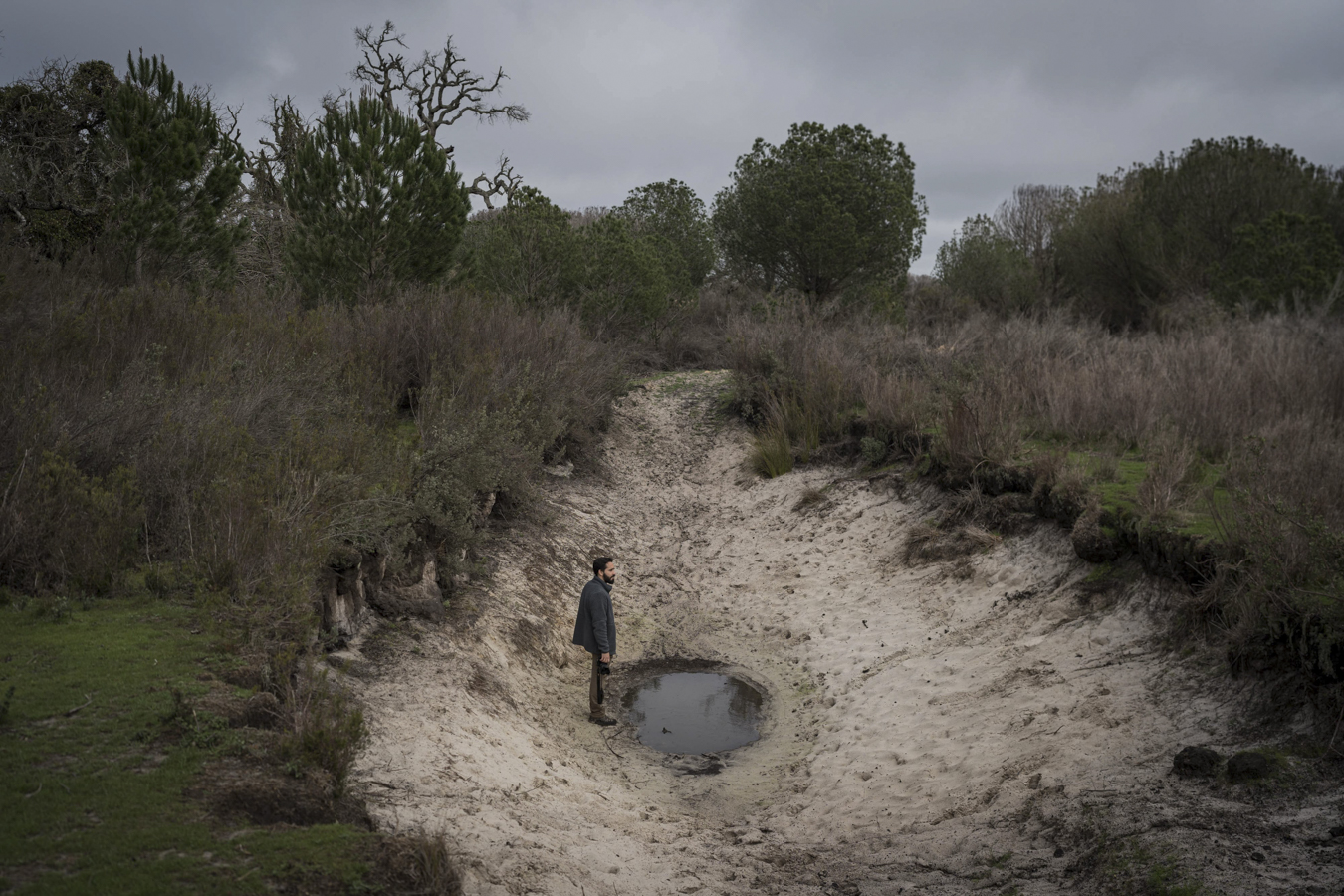
The land that breaks-3
Miguel de Felipe, a biologist at the Doñana Biological Station, stands beside a nearly dried-up lagoon within Doñana Natural Park in Huelva, Spain. This critical wetland, part of one of Europe’s most important protected ecosystems, is suffering severe water depletion primarily due to intensive agriculture’s excessive groundwater extraction and the widespread use of illegal wells. These unsustainable water practices threaten the delicate balance of the park’s habitats, endangering numerous species that depend on its unique wetlands and jeopardizing the future of this UNESCO Biosphere Reserve.
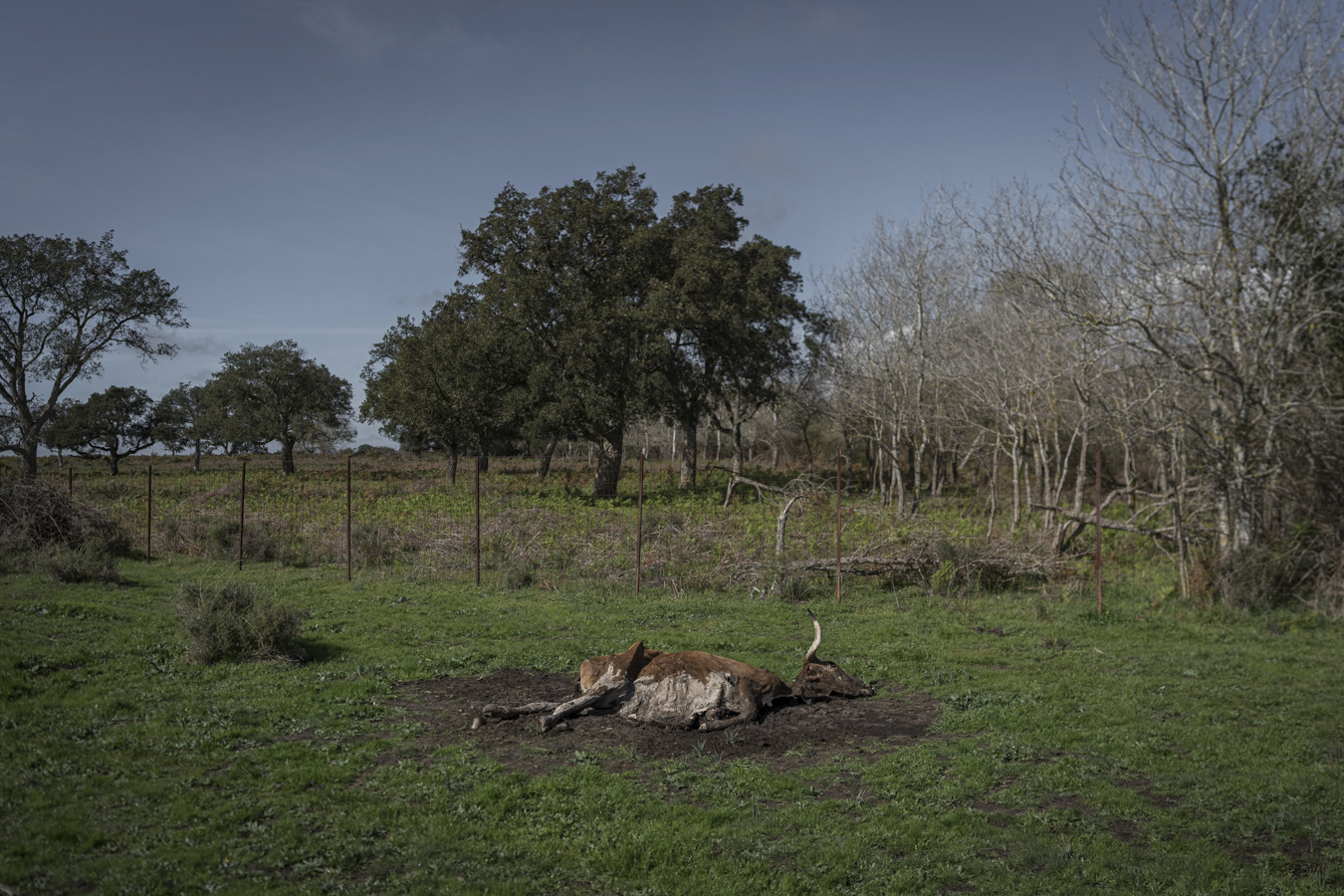
The land that breaks-4
The remains of a deceased cow rest within Doñana Natural Park in Huelva, Spain. Many animals in the park have experienced disrupted life cycles and threatened survival due to the severe drought affecting the park’s aquifers. This ecological imbalance, driven largely by unsustainable water extraction, poses a serious risk to the park’s rich biodiversity and fragile ecosystems.
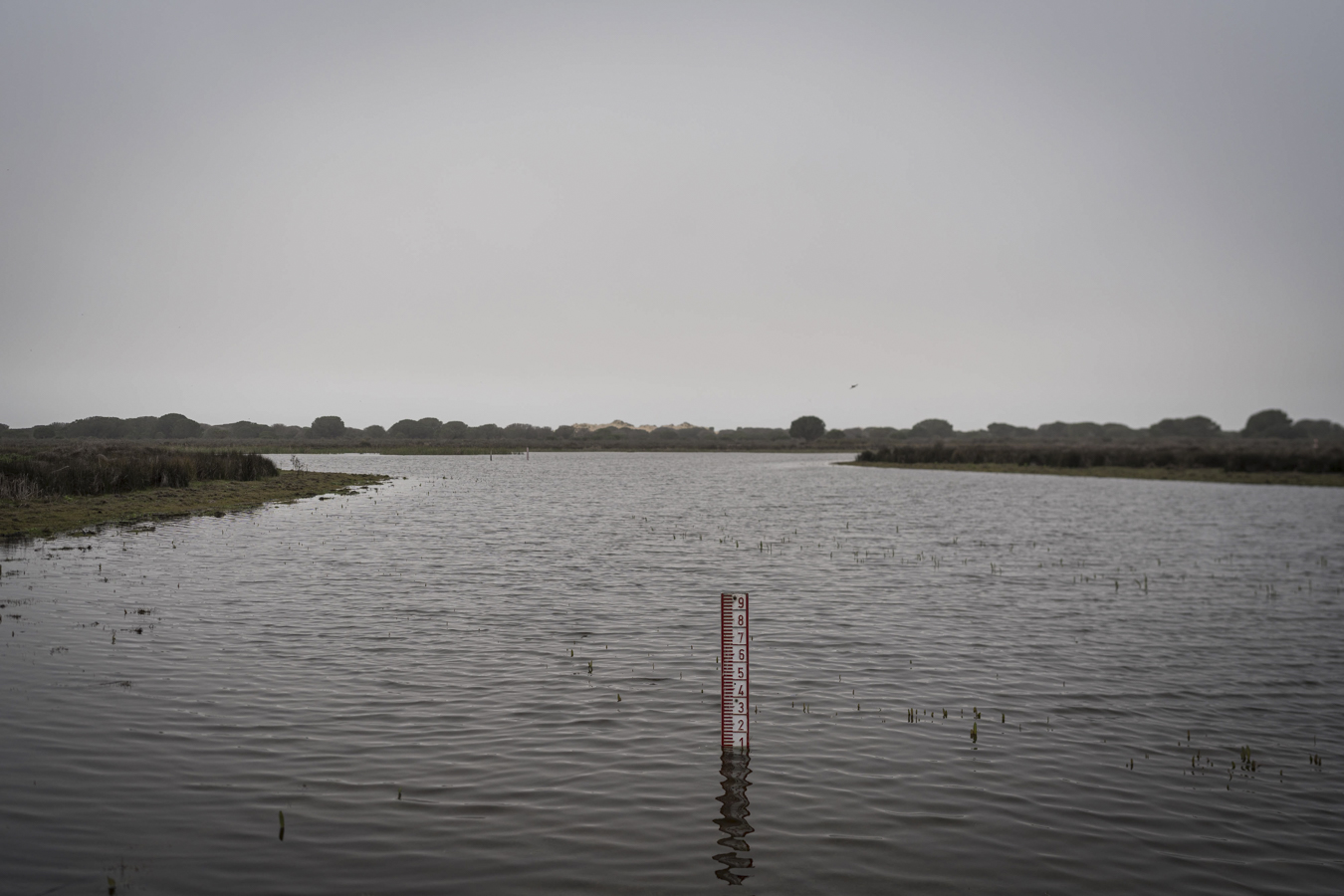
The land that breaks-5
A water level gauge stands in one of the last remaining lagoons with water in Doñana Natural Park in Huelva, Spain. The water level, visible at just under one meter, is alarmingly low for one of the park’s largest lagoons. This drastic drop threatens the habitat of countless animals and migratory birds that rely on these wetlands as a critical stopover during their seasonal journeys. The shrinking water levels reflect the ongoing environmental stress caused by prolonged drought and unsustainable water use, posing serious challenges to the delicate balance of this vital ecosystem.
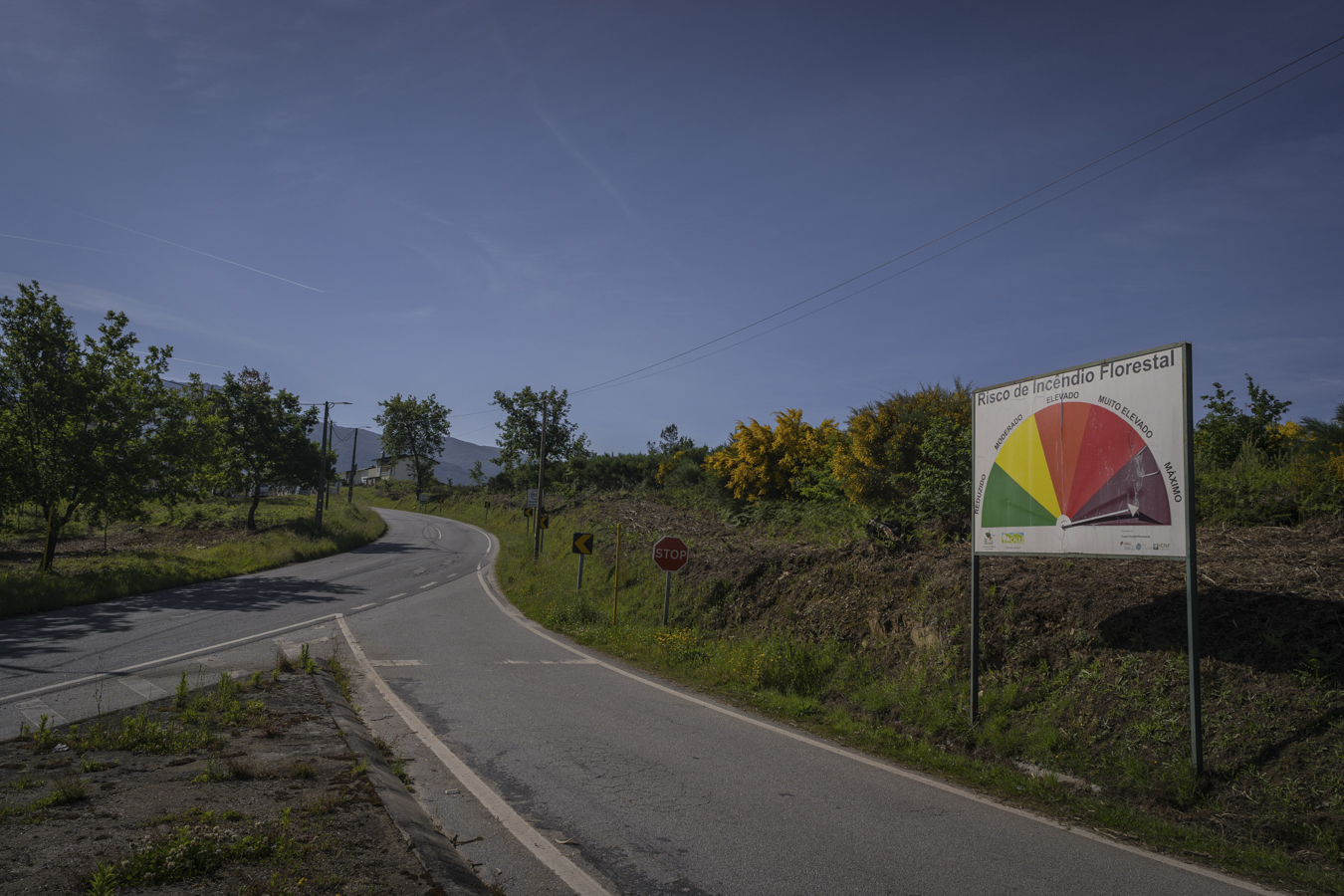
The land that breaks-6
A sign warns of extreme fire risk in a region of central Portugal near the Serra da Estrela, one of the country’s most vulnerable protected areas. The threat is heightened by the widespread presence of eucalyptus — a fast-growing, non-native and invasive species that now accounts for over 25% of Portugal’s total forest cover. Eucalyptus plantations, promoted for their economic value in the paper and pulp industry, dry out the soil and create highly flammable monocultures. These conditions, combined with rising temperatures and drought, have turned much of the region into a tinderbox, where wildfires have become increasingly frequent and destructive, endangering both ecosystems and local communities.
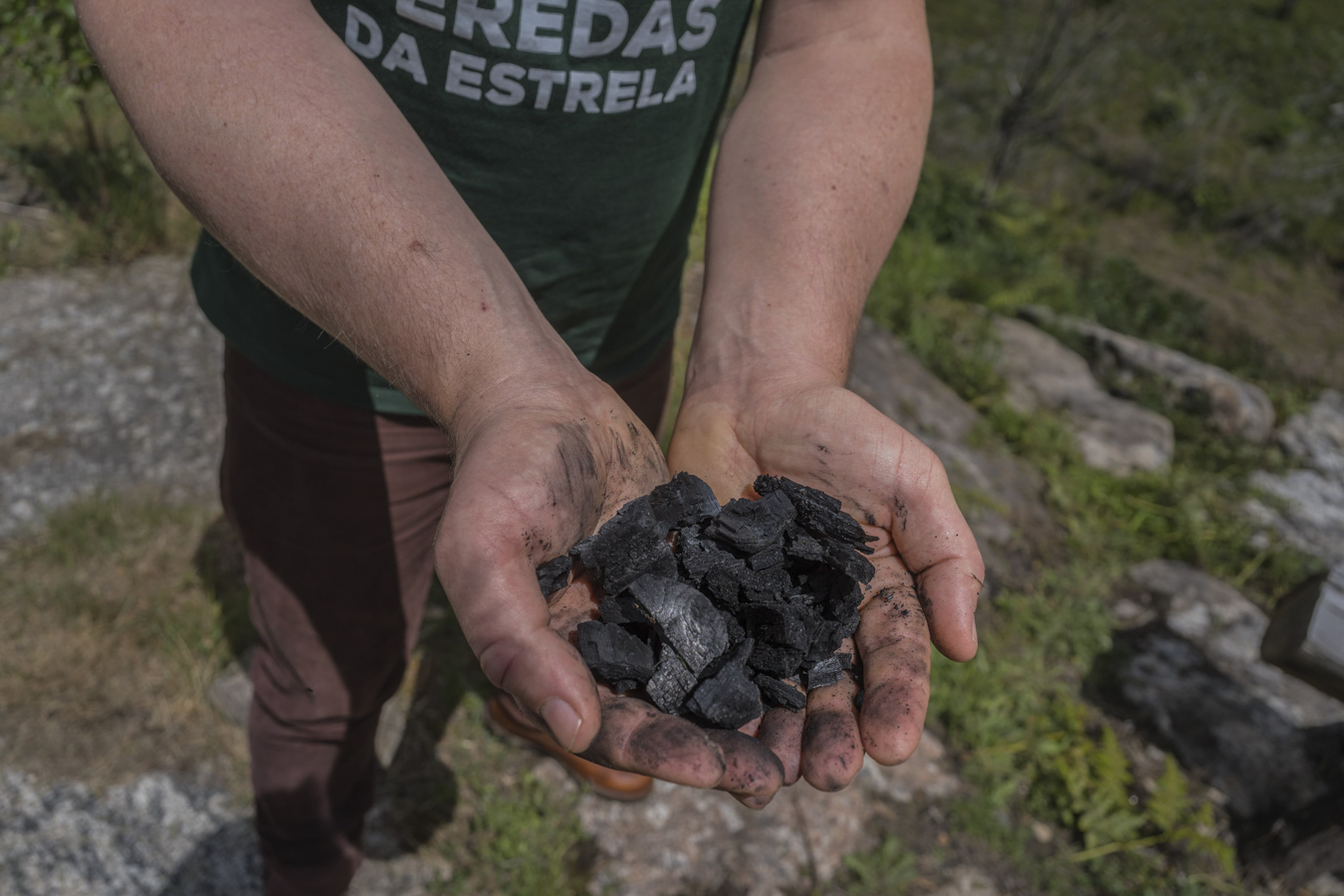
The land that breaks-7
Nik Volker, from the environmental organization Veredas da Estrela, holds a handful of ash left behind by the devastating 2022 wildfire in Figueiró da Serra, Portugal, within the Serra da Estrela Natural Park. This protected area, home to diverse native flora and fauna, was severely impacted by the blaze — one of the worst in the park’s recent history. Veredas da Estrela is working to restore the burned landscape and implement preventive strategies to protect the region from future wildfires. Their efforts focus on reintroducing native species, promoting sustainable land management, and raising awareness about the growing ecological threats facing one of Portugal’s most important natural ecosystems.
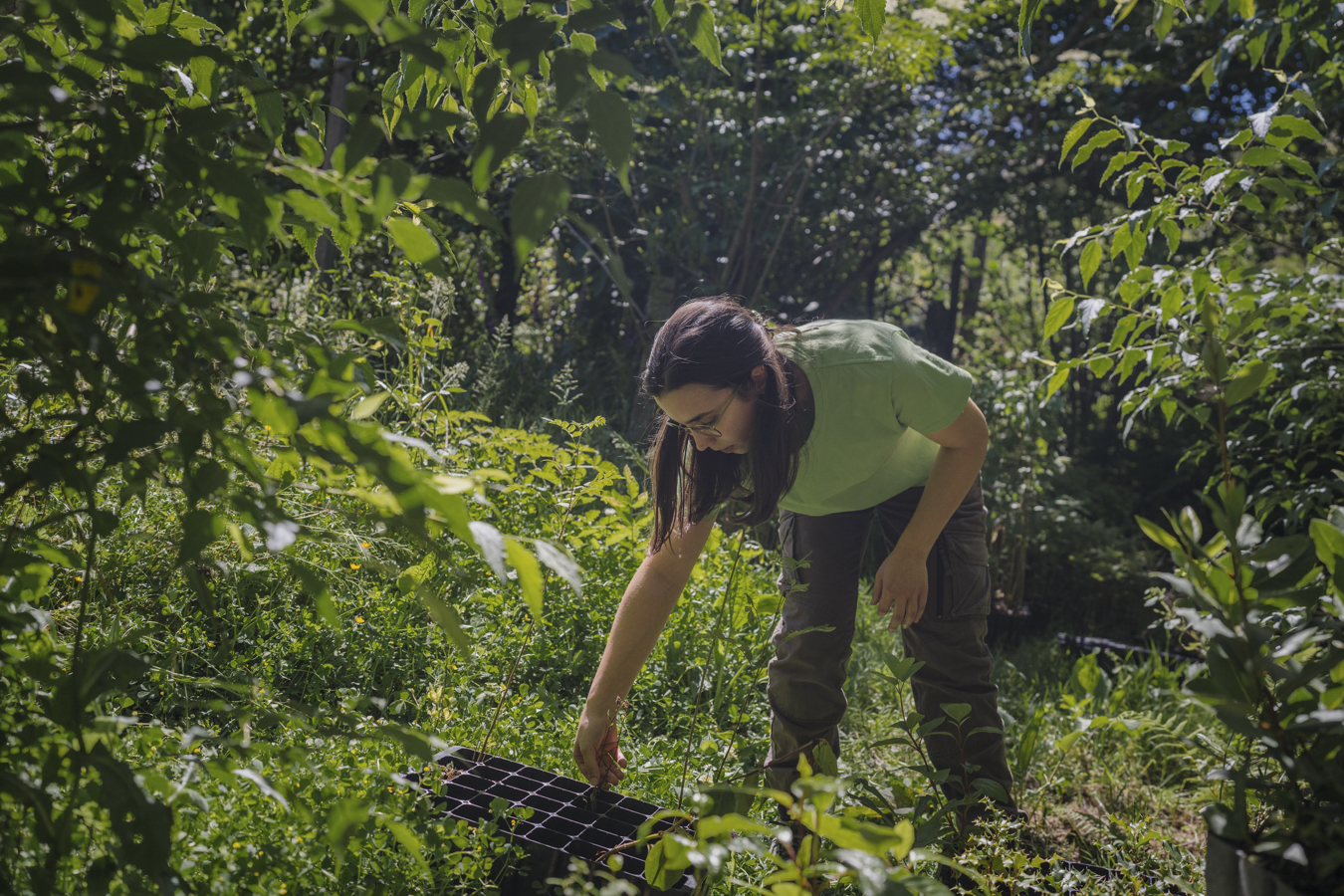
The land that breaks-8
Inês Pimentel, from the environmental organization BioLiving, works at the group’s native plant nursery in Estarreja, Portugal — a region surrounded by extensive eucalyptus plantations. In stark contrast to the surrounding monocultures, this project aims to create a sanctuary of biodiversity. By cultivating a rich variety of native plants and diverse forest species, the initiative seeks not only to restore ecological balance but also to serve as a natural firebreak against the spread of increasingly frequent wildfires fueled by flammable eucalyptus groves.
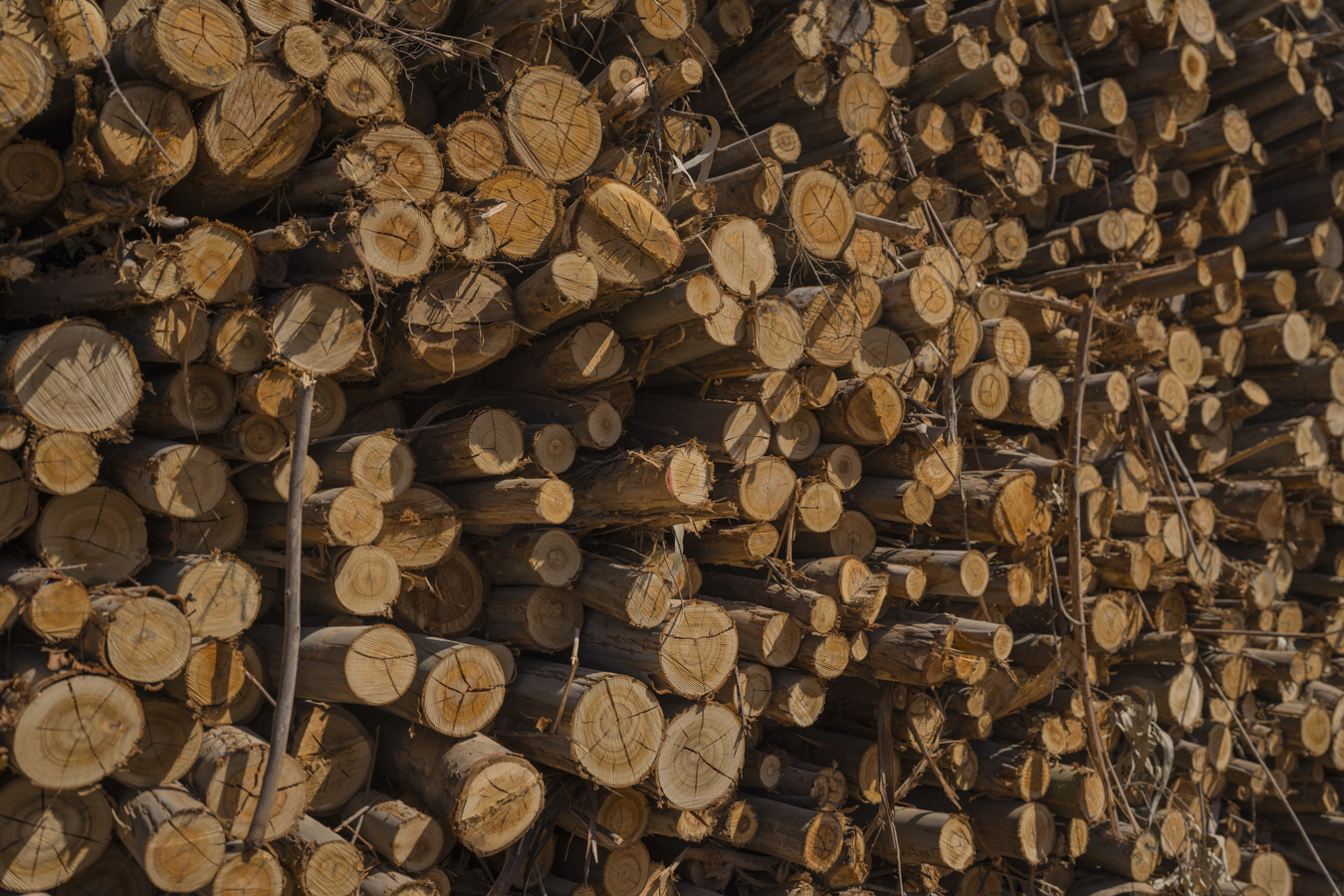
The land that breaks-9
Freshly cut eucalyptus trees lie in a large-scale plantation near Óbidos, Portugal. These fast-growing, non-native trees are widely cultivated for the paper and pulp industry, but their dominance across the Portuguese landscape — now covering over a quarter of the country’s forests — has raised serious environmental concerns. Eucalyptus depletes soil moisture, reduces biodiversity, and creates highly flammable conditions that contribute to the intensity and frequency of wildfires across the region.
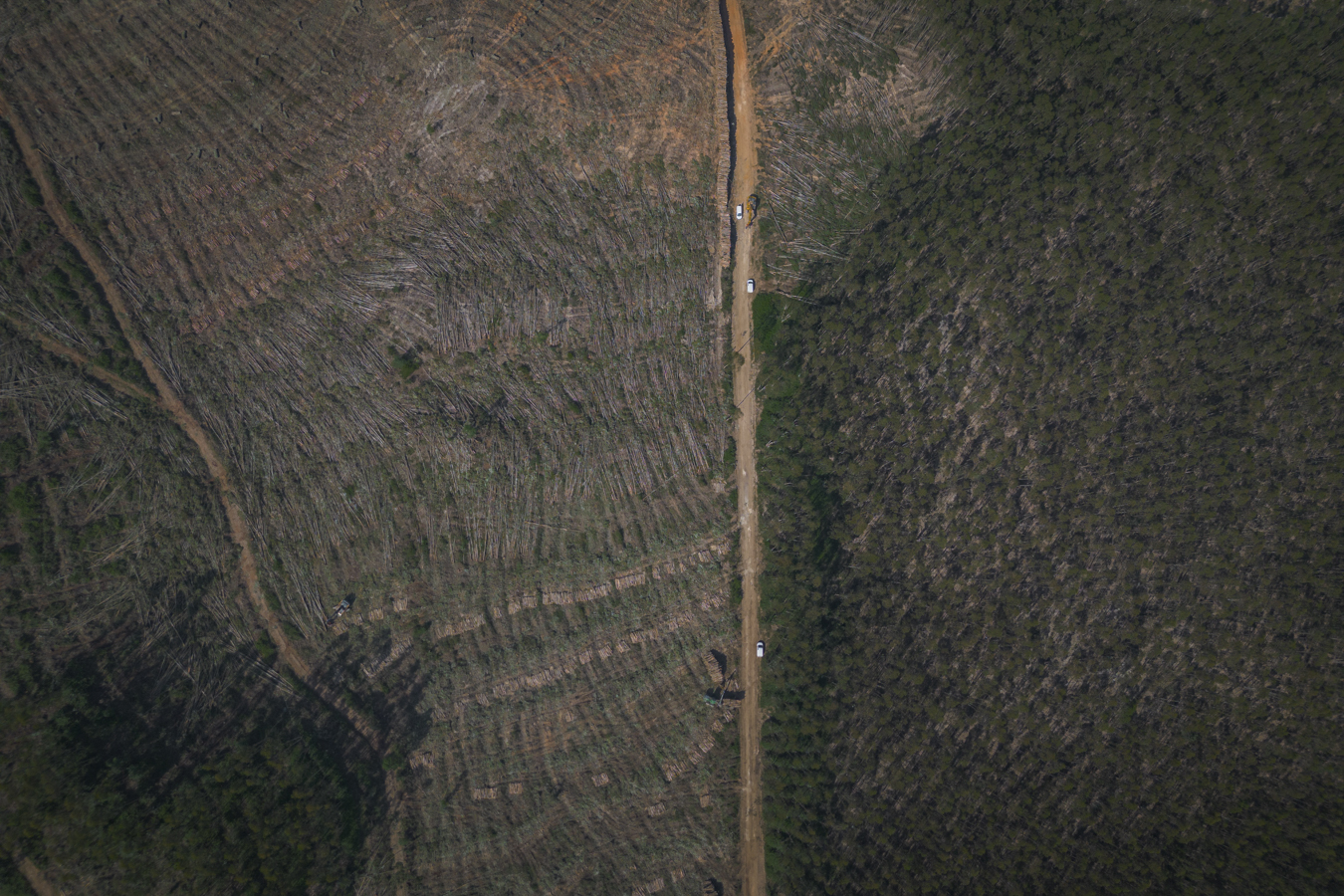
The land that breaks-10
Aerial view of a eucalyptus plantation near Óbidos, Portugal. Eucalyptus, a fast-growing non-native species introduced for industrial use, now dominates vast areas of the Portuguese landscape. While economically valuable for the pulp and paper industry, its proliferation has significant ecological costs — including soil degradation, loss of native biodiversity, and increased fire risk due to the species’ highly flammable nature. Monoculture plantations like this one have become a central point of debate in Portugal’s struggle between economic interests and environmental sustainability.